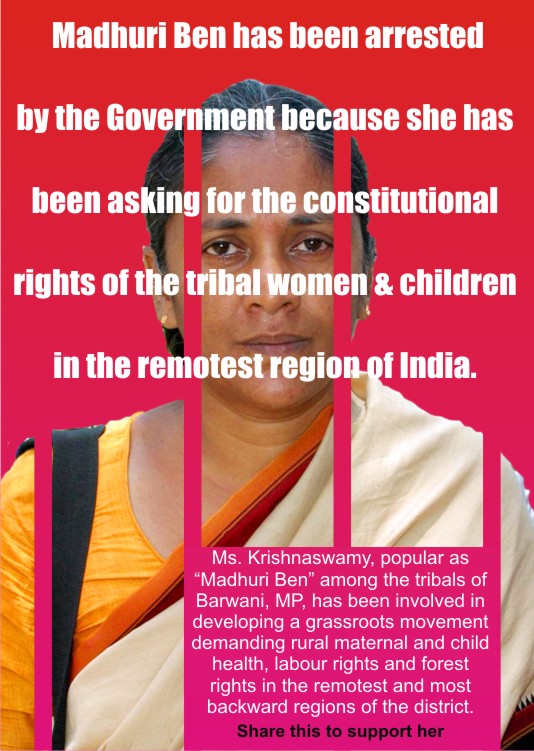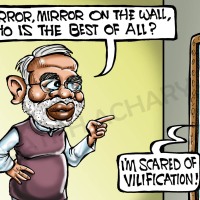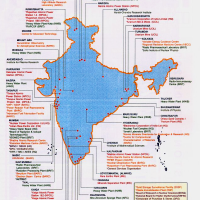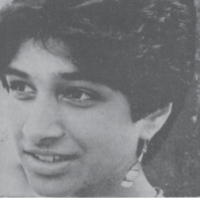Pheroze L. Vincent
-
 The Hindu Villagers staging indefinite dharna at Kharak Dam at Chaukhand village in Khargone district in Madhya Pradesh on Thursday demanding proper compensation. Photo: A.M. Faruqui
The Hindu Villagers staging indefinite dharna at Kharak Dam at Chaukhand village in Khargone district in Madhya Pradesh on Thursday demanding proper compensation. Photo: A.M. Faruqui -
 The Hindu Villagers including children staging indefinite dharna at Kharak Dam at Chaukhand village in Khargone disstrict in Madhya Pradesh on Thursday, demanding proper compensation. Photo: A.M. Faruqui.
The Hindu Villagers including children staging indefinite dharna at Kharak Dam at Chaukhand village in Khargone disstrict in Madhya Pradesh on Thursday, demanding proper compensation. Photo: A.M. Faruqui. -
 The Hindu Villagers staging indefinite dharna at Kharak Dam at Chaukhand village in Khargone disstrict in Madhya Pradesh on Thursday, demanding proper compensation. Photo: A.M.Faruqui
The Hindu Villagers staging indefinite dharna at Kharak Dam at Chaukhand village in Khargone disstrict in Madhya Pradesh on Thursday, demanding proper compensation. Photo: A.M.Faruqui
Sisters Kalibai and Phulbai are in a state of shock after they were caned by the police on May 25. Aged 8 and 6, they rushed towards their father Tudpiabai Gangaram on seeing him being caned by the police during a protest against the Kharak Reservoir being built beside their village.
“I said don’t hit my father. My father asked us to run away. Before we could run the policeman hit us also,” said Kali, struggling to talk with her swollen mouth. Phul asked her to open her mouth. “Her tooth broke as the cane hit her mouth,” she said pointing at a missing tooth.
Chaukhand has been resisting the construction of the dam, a minor irrigation project in Khargone and Barwani districts, roughly 350 km south west of Bhopal. Inhabited by the Barela tribe, the village grows wheat, jowar, soya, groundnuts and other traditional millets, beside River Kharak. Most residents do not have documents for the land they cultivate. The reservoir will submerge parts of seven villages.
Work on the project, which had started less than a year ago, has stopped for the last two months due to protests by locals. There are daily dharnas under the village peepul tree demanding a comprehensive rehabilitation policy, before the dam comes up.
“We had started work only on the 55 hectares for which claims were settled at roughly Rs. 3 lakhs per acre according to the collector’s guidelines. The problem is with those who don’t have documents. The principal secretary has decided to give them a relief amount of Rs. 4 lakhs per hectare. On Saturday we went to talk with the villagers when the situation deteriorated,” said Executive Engineer SS Raghuvanshi of the Water Resources Department.
Villagers narrated a different story. “At 10.30 a.m. we were on dharna as usual when four police vans came with around 150 male and female officers. The Sub Divisional Magistrate Jitendra Singh Chouhan was in front. They formed a line. We went to the SDM and asked when we will get compensation. He said that everyone with documents will get compensation but first we must clear the area,” said Shivram Kanase an activist of the Jagrit Adivasi Dalit Sangathan (JADS) which works in the area.
The villagers asked them to pay the compensation before starting work. Police then forcibly evicted them from the site. “They chased me and snatched my child from my arms and threw him on the ground. That policeman’s breathe smelt of liquor. He beat me with his cane,” said Samranabai, a local resident.
Collector Navneet Kothari is on leave and Superintendent of Police R. P. Singh refused to answer queries. He said, “You do your job. If I say there was no lathi charge, will you believe me?”
Another lady named Banchibai Ningole, with an infant at her breast, was arrested from her house, said villagers. Totally seven men and twenty women are in judicial custody. They were denied bail on Wednesday. The police have told the court that they are on the look out for others and that if released, the 27 would rejoin the protests.
“I asked the SDM why his men were beating women and children. He said that we were stopping government work and we would be locked up. Inspector T. C. Usre caught my hand and hit me. The women constables didn’t do anything. Maybe they felt bad for us,” said Gyanibai Jadav.
SDM Chouhan denied the occurrence of a lathi charge. “Villagers attacked the workers at the site. I told them that we won’t tolerate violence. We can convey their objections to the government. Police only removed them from the machines. There was no lathi charge,” he told The Hindu.
Many men and women showed the cane scars on their backs and legs. Four children with bruises claimed they had either been hit or had fallen while running from the police. The counsel for the arrested, C. K. Pathak said that he wasn’t pressing charges on the police as he first wants his clients to be released.
Bail was denied on a day when CM Shivraj Chauhan visited the district to conduct a mass marriage. On May 28 the government announced a Rs. 212 crore package for oustees of the Omkareshwar Dam, which will be given on condition that they vacate their homes by July 15. The evictees in neighbouring Khandwa had gained international prominence when they went on jal satyagraha by indefinitely immersing sitting in the River Narmada last year.
Here in Chaukhand, an uneasy peace prevails with villagers unsure of whose lands will be occupied and how much money they will get. Many fields have already been filled with rocks by the construction contractors. They are also under pressure from panchayat leaders not to obstruct the construction. Both the dharna continues and construction work has stopped.
Villager Sakaram accompanied this reporter on the way out of the village, which is connected to Dhulkot Panchayat by a long un-metallled road filled with stones. Ambulances don’t come here, he said, and many women have complicated pregnancies due to the journey on bullock cart to the hospital.
On Thurday a Barwani court granted bail to JADS leader Madhuri Krishnaswamy, who was arrested a fortnight back for a 2008 case of rioting. Ms. Krishnaswamy took up the case of a tribal woman giving birth on the street after being evicted from a primary health centre. The suspended pharmacist had filed the case on her.
“Last time we all voted for BJP as they promised us land pattas. This time we are going to meet (Congress state president) Kantilal Bhuria ji when he visits Khargone of June 4,” Mr. Sakaram added. He goes to public meetings of both the Congress and the BJP. “One day they will listen to us,” he explained.
Related articles
- Tribals arrested, lathi-charged for demanding rehabilitation (kractivist.wordpress.com)
- PRESS RELEASE- Repression of people affected by Kharak Dam in Madhya Pradesh (kractivist.wordpress.com)
- Tribals protest over Madhuri being sent to Jail for speaking for the ‘right of pregnant women #Vaw (kractivist.wordpress.com)
- #India – Maternal Health Whistle Blower Arrested #Vaw #Womenrights (kractivist.wordpress.com)
- Rs 212 crore for Omkareshwar dam oustees (kractivist.wordpress.com)
- Woman Activist lands in jail for protesting lack of health facilities in tribal district five years ago (kractivist.wordpress.com)


















